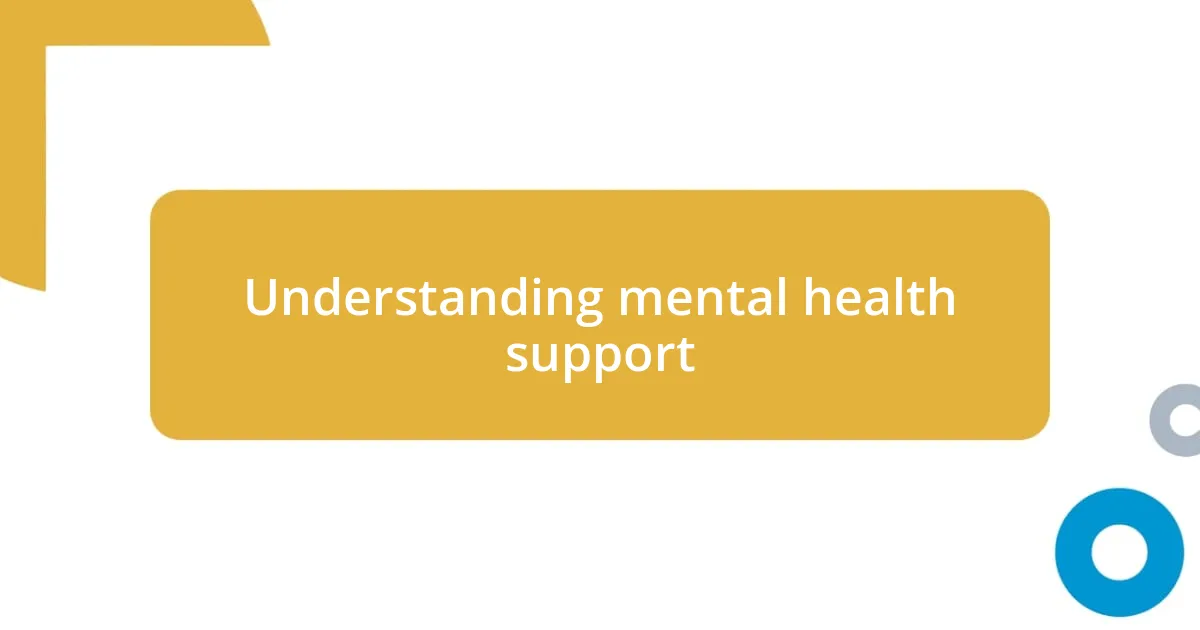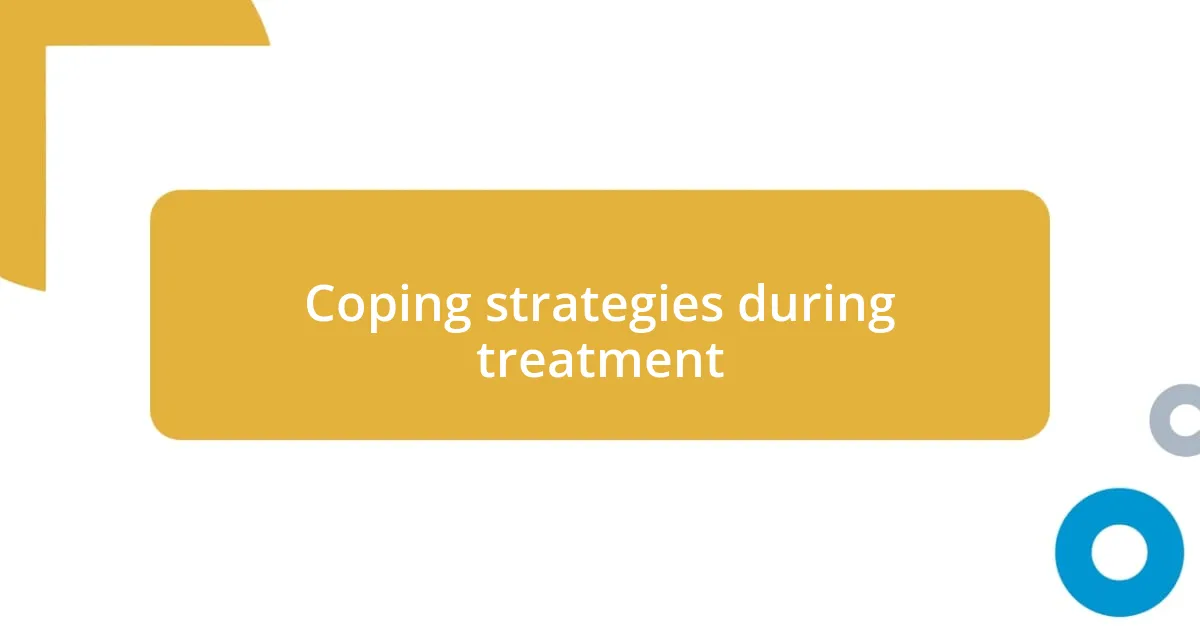Key takeaways:
- Mental health support is vital and comes in various forms, including therapy, support groups, and online forums.
- Seeking help is a strength, fostering connection and resilience rather than a sign of weakness.
- Establishing a routine, journaling, and engaging in creative activities can significantly improve mental well-being during treatment.

Understanding mental health support
Mental health support is more than just a safety net; it can be a lifeline. I remember the first time I reached out for help—it felt monumental, like stepping into the unknown. I often wondered, “Will anyone truly understand what I’m going through?” But the moment I opened up, I realized that vulnerability leads to connection.
What surprises many people is the variety of forms mental health support can take. From therapy sessions to support groups and even online forums, each pathway provides different benefits. In my experience, attending a local support group was eye-opening. Sharing my struggles with others who truly empathized made me feel less isolated, and I learned that many of us share the same battles.
It’s essential to recognize that seeking support is an act of strength, not weakness. I used to equate asking for help with failure, but with time, I grasped that it’s about nurturing my mental well-being. Isn’t it empowering to think that we don’t have to face our challenges alone? Taking that step towards support can ignite healing and foster resilience.

Coping strategies during treatment
When I was in treatment, I discovered that having a routine was a game changer for my mental health. Each morning, I carved out time for mindfulness exercises, whether it was meditating or simply enjoying my coffee in silence. How did this help? It grounded me and created a sense of stability during a time when everything felt chaotic.
Another coping strategy I embraced was journaling. I vividly recall the first time I put pen to paper, my thoughts flowed like a river. It was therapeutic; writing not only helped me articulate my feelings but also served as a release valve for my emotions. I often found clarity in my struggles just by reflecting on the day’s highs and lows. Have you tried journaling? It can unearth insights you didn’t even know existed.
In addition, I leaned into creative outlets, like painting and music. When I felt overwhelmed, grabbing a paintbrush or strumming my guitar brought me solace. I remember one particularly tough day, losing myself in a swirl of colors on the canvas seemed to dissolve my anxiety. Has creativity played a role in your coping mechanisms? Sometimes, expressing ourselves through art can bridge the gap between feelings and words, offering respite in difficult moments.














